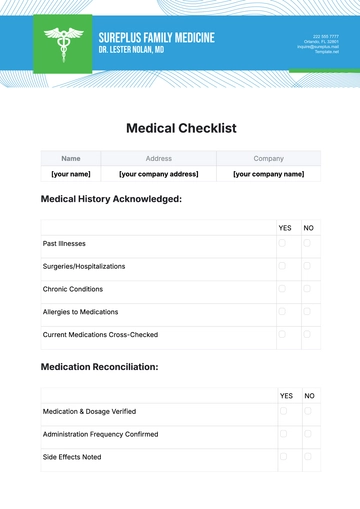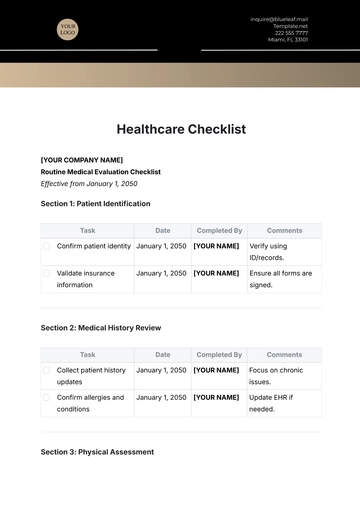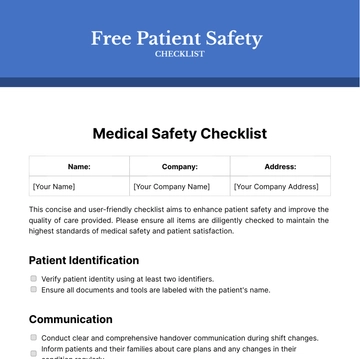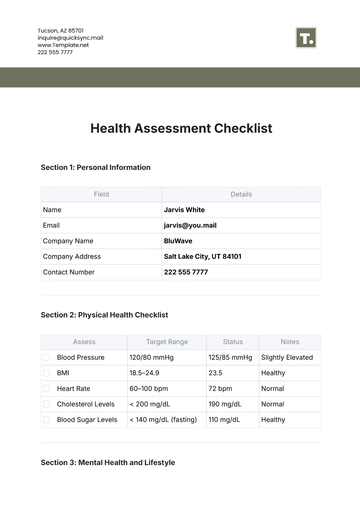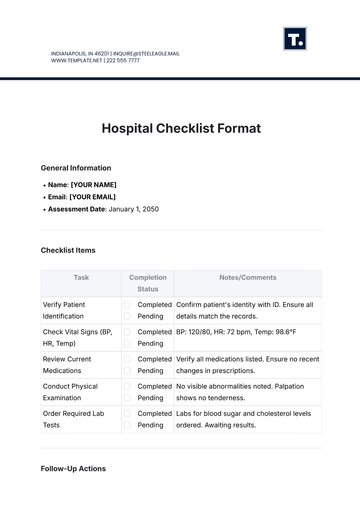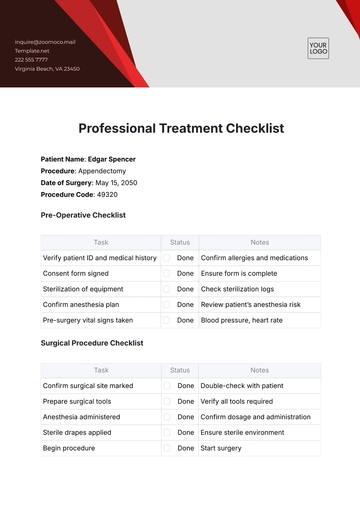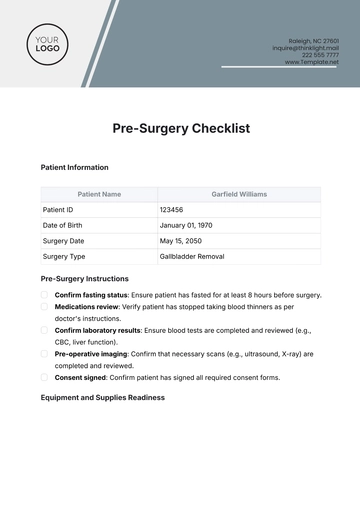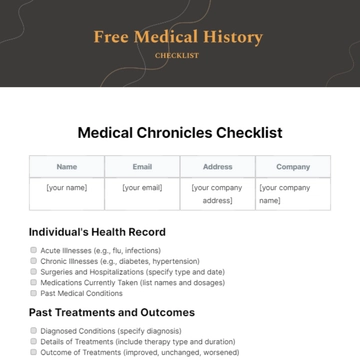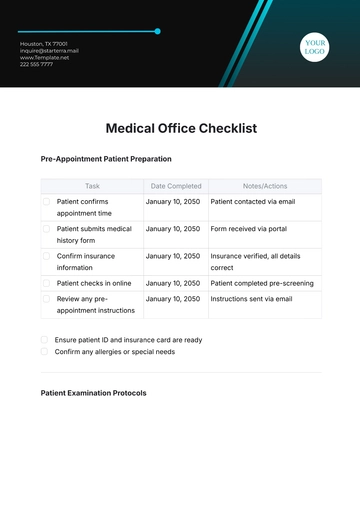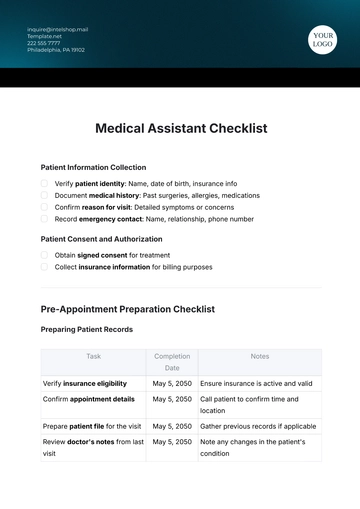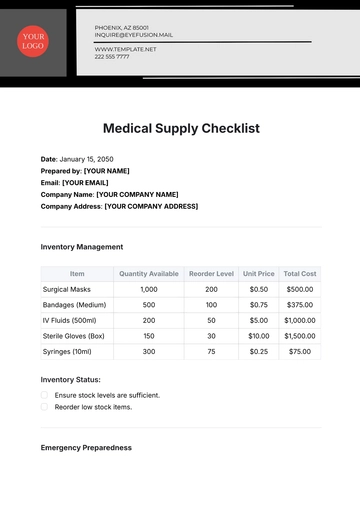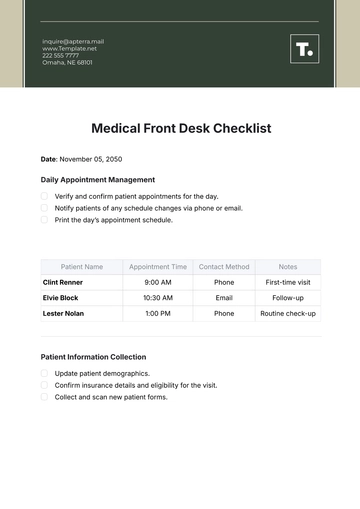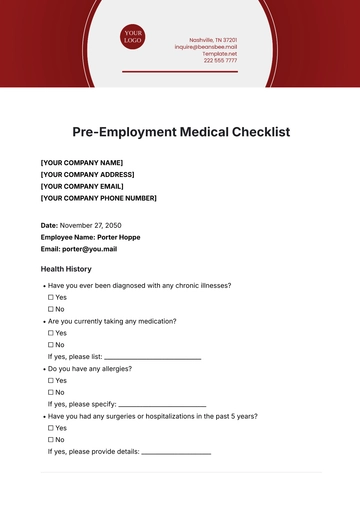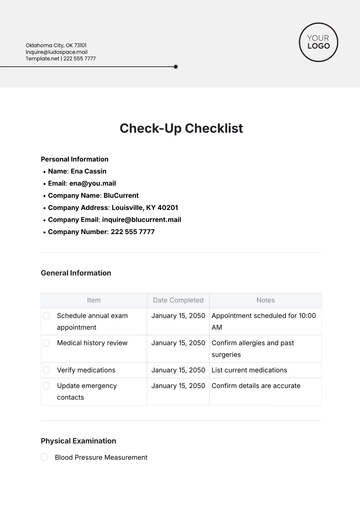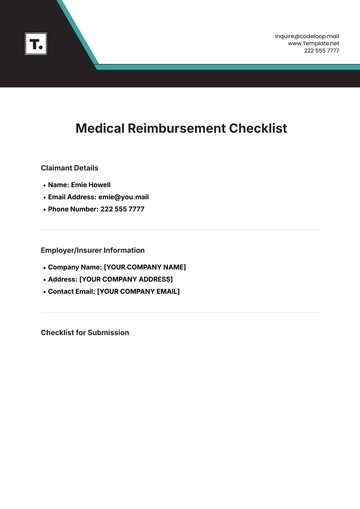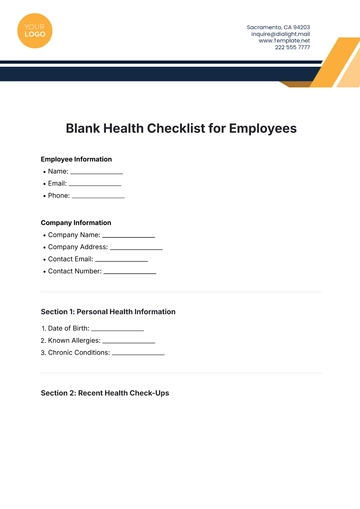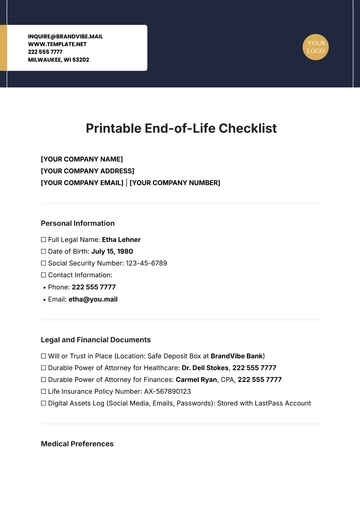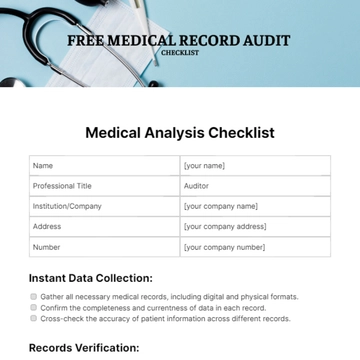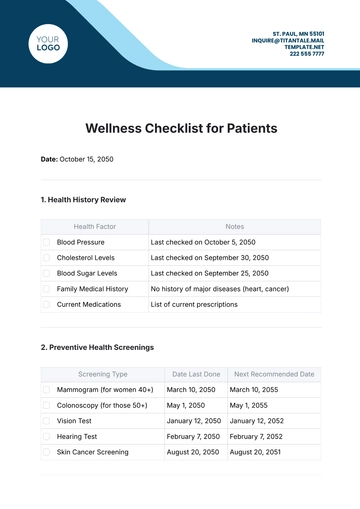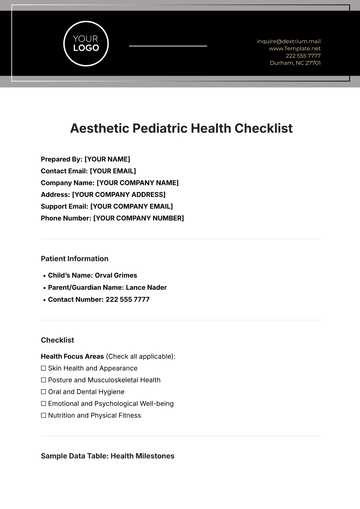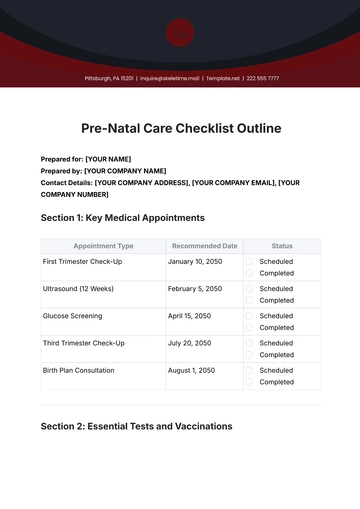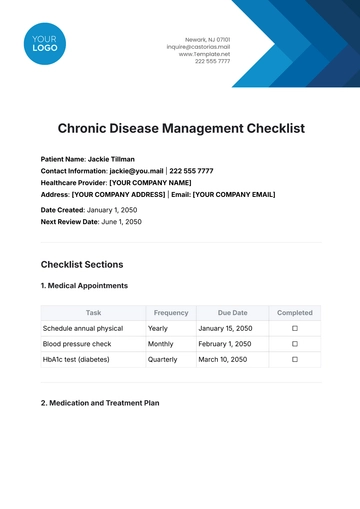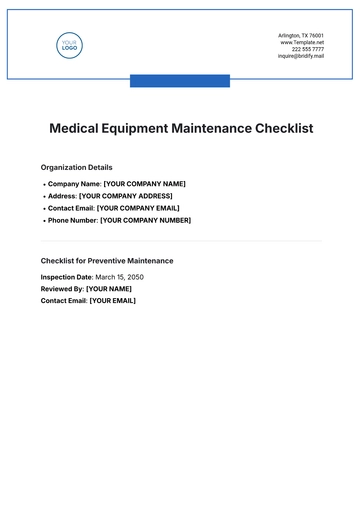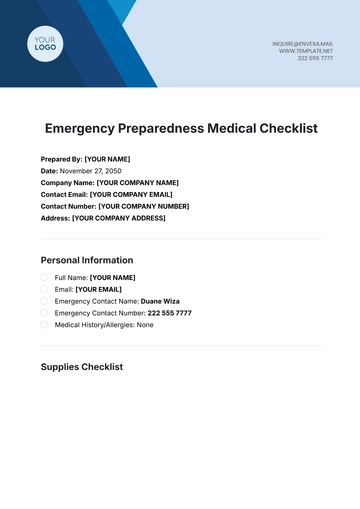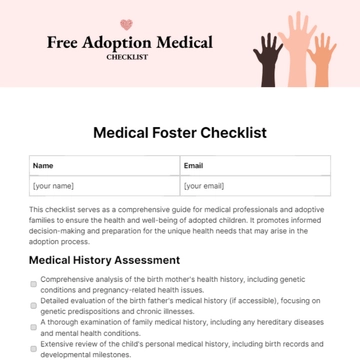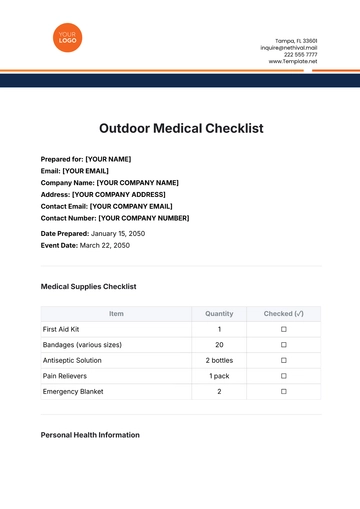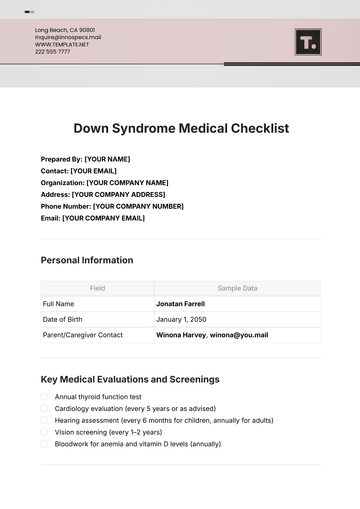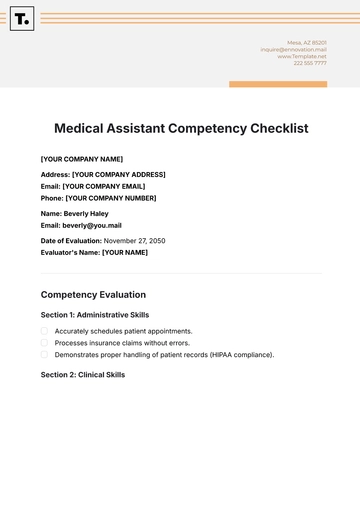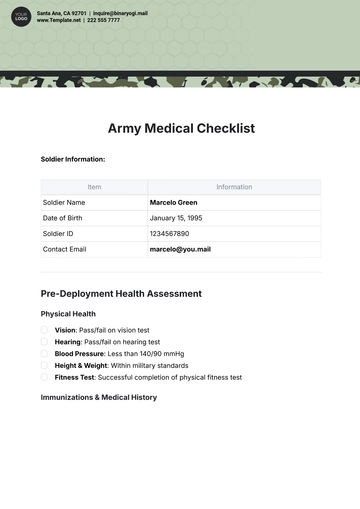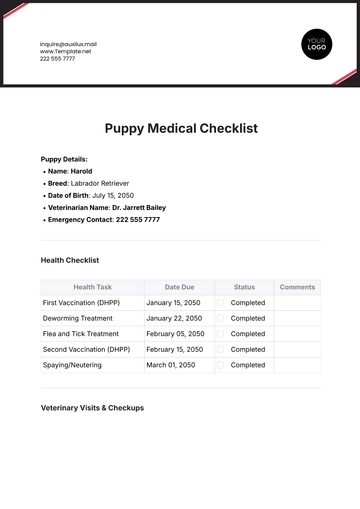Free Head Medical Specialist Checklist
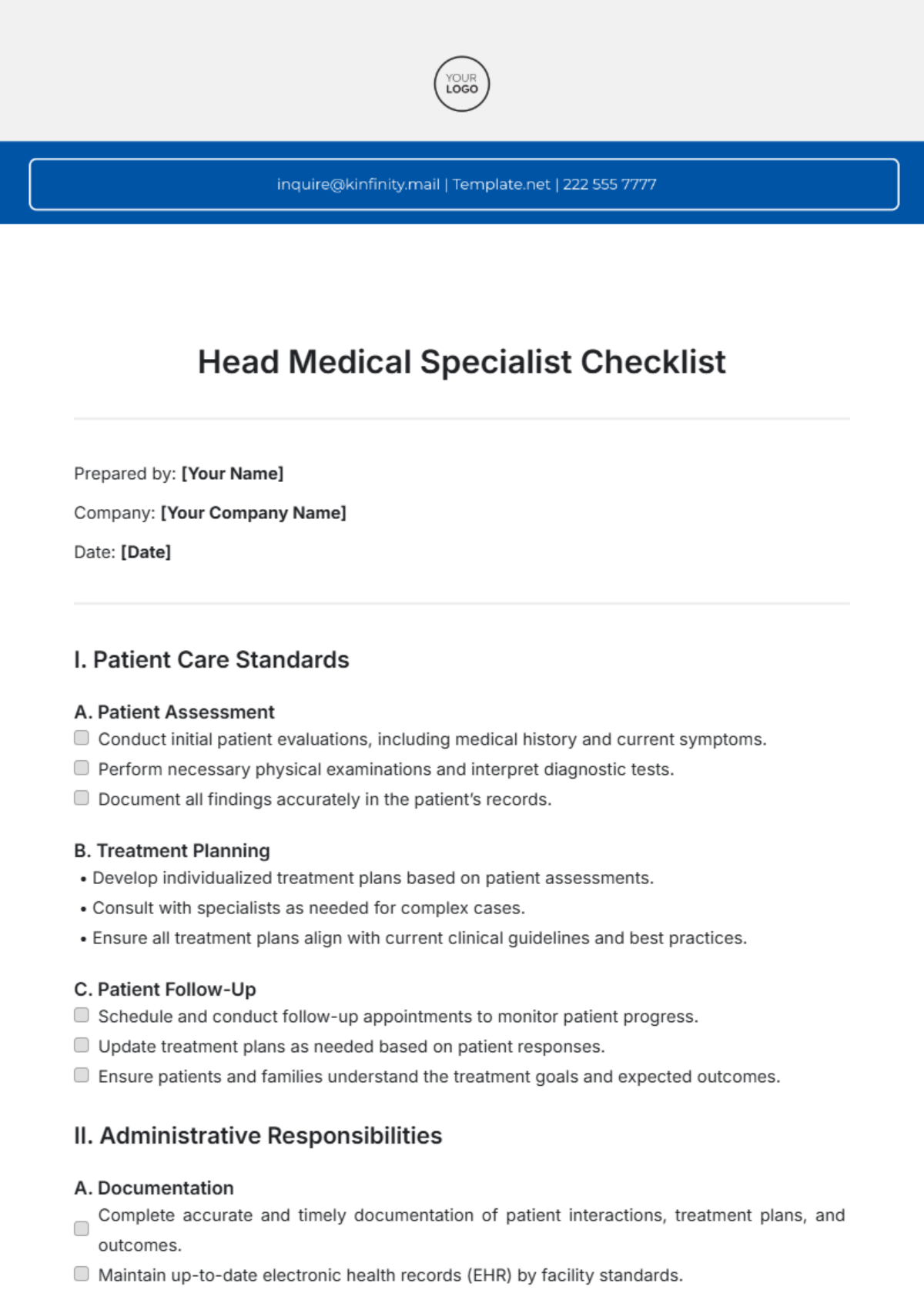
Prepared by: [Your Name]
Company: [Your Company Name]
Date: [Date]
I. Patient Care Standards
A. Patient Assessment
Conduct initial patient evaluations, including medical history and current symptoms.
Perform necessary physical examinations and interpret diagnostic tests.
Document all findings accurately in the patient’s records.
B. Treatment Planning
Develop individualized treatment plans based on patient assessments.
Consult with specialists as needed for complex cases.
Ensure all treatment plans align with current clinical guidelines and best practices.
C. Patient Follow-Up
Schedule and conduct follow-up appointments to monitor patient progress.
Update treatment plans as needed based on patient responses.
Ensure patients and families understand the treatment goals and expected outcomes.
II. Administrative Responsibilities
A. Documentation
Complete accurate and timely documentation of patient interactions, treatment plans, and outcomes.
Maintain up-to-date electronic health records (EHR) by facility standards.
B. Scheduling
Manage daily schedules efficiently to minimize patient wait times.
Coordinate with administrative staff to ensure smooth operation and patient flow.
C. Reporting
Prepare and submit reports on patient outcomes, treatment efficacy, and departmental performance.
Participate in regular administrative meetings to discuss case studies and improvements.
III. Safety Protocols
A. Infection Control
Follow and enforce all infection control policies, including hand hygiene and equipment sterilization.
Ensure proper use of personal protective equipment (PPE) by all staff members.
B. Emergency Procedures
Stay prepared for medical emergencies by reviewing protocols regularly.
Conduct or participate in periodic emergency drills and simulations.
C. Compliance with Health Regulations
Ensure compliance with all relevant health and safety regulations, including those from OSHA and the CDC.
Report any safety concerns or incidents immediately to the appropriate department.
IV. Team Collaboration and Communication
A. Interdisciplinary Communication
Maintain open and clear communication with doctors, nurses, and allied health professionals.
Ensure all team members are updated on patient conditions and treatment plans.
B. Case Consultations
Participate in regular case discussions to review complex cases and receive input from other specialists.
Actively contribute to case discussions, sharing insights and potential treatment approaches.
C. Staff Supervision and Support
Guide junior staff members, including mentorship on clinical skills.
Address any team conflicts professionally and work towards collaborative solutions.
V. Continuing Education and Training
A. Medical Knowledge Updates
Regularly attend workshops, seminars, or conferences to stay informed about advancements in the medical field.
Complete continuing education credits as required by the licensing board.
B. Skills Development
Pursue opportunities for skill development in new medical procedures or technologies.
Encourage and facilitate training sessions for the team to improve collective expertise.
C. Compliance with Certification Requirements
Maintain any required certifications, ensuring they are renewed on time.
Document completed training and certifications for compliance and audit purposes.
- 100% Customizable, free editor
- Access 1 Million+ Templates, photo’s & graphics
- Download or share as a template
- Click and replace photos, graphics, text, backgrounds
- Resize, crop, AI write & more
- Access advanced editor
Ensure optimal healthcare practices with the Head Medical Specialist Checklist Template from Template.net. This editable and customizable template helps medical professionals track patient care, appointments, and administrative tasks. Editable in our Ai Editor Tool, you can adjust it to meet the unique needs of your medical practice, improving efficiency and patient satisfaction.
You may also like
- Cleaning Checklist
- Daily Checklist
- Travel Checklist
- Self Care Checklist
- Risk Assessment Checklist
- Onboarding Checklist
- Quality Checklist
- Compliance Checklist
- Audit Checklist
- Registry Checklist
- HR Checklist
- Restaurant Checklist
- Checklist Layout
- Creative Checklist
- Sales Checklist
- Construction Checklist
- Task Checklist
- Professional Checklist
- Hotel Checklist
- Employee Checklist
- Moving Checklist
- Marketing Checklist
- Accounting Checklist
- Camping Checklist
- Packing Checklist
- Real Estate Checklist
- Cleaning Checklist Service
- New Employee Checklist
- Food Checklist
- Home Inspection Checklist
- Advertising Checklist
- Event Checklist
- SEO Checklist
- Assessment Checklist
- Inspection Checklist
- Baby Registry Checklist
- Induction Checklist
- Employee Training Checklist
- Medical Checklist
- Safety Checklist
- Site Checklist
- Job Checklist
- Service Checklist
- Nanny Checklist
- Building Checklist
- Work Checklist
- Office Checklist
- Training Checklist
- Website Checklist
- IT and Software Checklist
- Performance Checklist
- Project Checklist
- Startup Checklist
- Education Checklist
- Home Checklist
- School Checklist
- Maintenance Checklist
- Planning Checklist
- Manager Checklist
- Wedding Checklist
- Vehicle Checklist
- Travel Agency Checklist
- Vehicle Inspection Checklist
- Interior Design Checklist
- Backpacking Checklist
- Business Checklist
- Legal Checklist
- Nursing Home Checklist
- Weekly Checklist
- Recruitment Checklist
- Salon Checklist
- Baby Checklist
- Equipment Checklist
- Trade Show Checklist
- Party Checklist
- Hospital Bag Checklist
- Evaluation Checklist
- Agency Checklist
- First Apartment Checklist
- Hiring Checklist
- Opening Checklist
- Small Business Checklist
- Rental Checklist
- College Dorm Checklist
- New Puppy Checklist
- University Checklist
- Building Maintenance Checklist
- Work From Home Checklist
- Student Checklist
- Application Checklist
